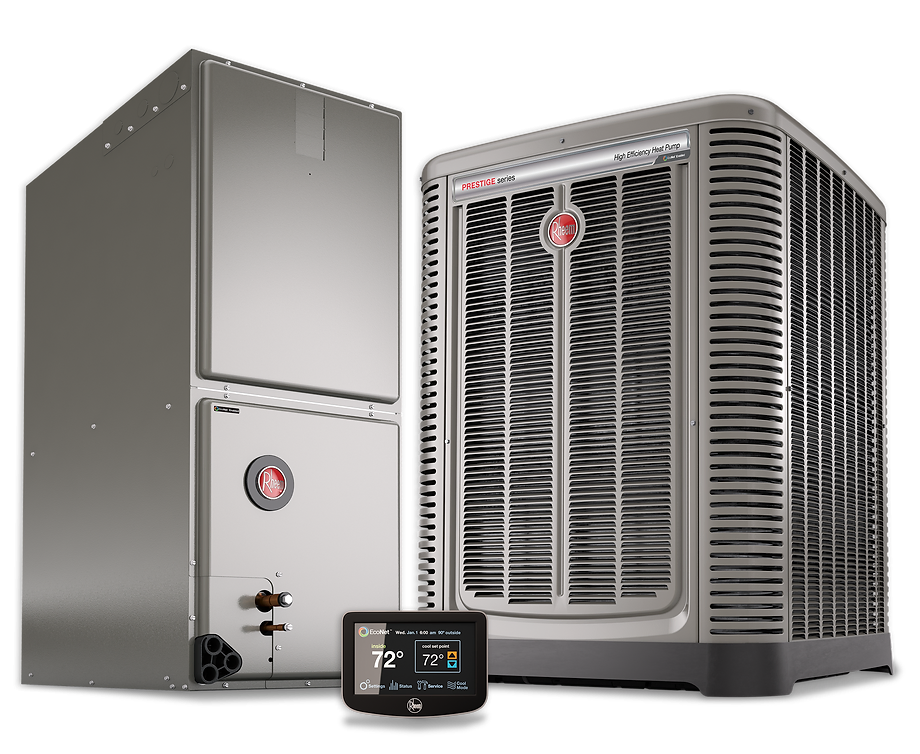When it comes to heating and cooling your home, there’s a technology that’s becoming increasingly popular – the air source heat pump. Whether you’re looking to replace an old furnace or just curious about what makes an air source heat pump tick, this article will break down the concept in a way that’s easy to understand for everyone.
Understanding Air Source Heat Pumps
Before we delve into the world of air source heat pumps, it’s important to note that there are multiple types of heat pumps, including air source, water source, and geothermal. This article will focus primarily on air source heat pumps.
What is an Air Source Heat Pump?
An air source heat pump is a versatile HVAC system that excels at maintaining your ideal temperature year-round. Here’s how it works:
- Indoor and Outdoor Units: An air source heat pump comprises of two key components: an indoor unit and an outdoor unit. The outdoor unit houses the compressor and the outdoor coil, while the indoor unit contains the blower fan and indoor coil.
- Types of Air Source Heat Pumps: Central heat pumps use an air handler or furnace to blow conditioned air through ductwork. Ductless heat pumps have 1 or many ductless air handlers that blow air where the air handler is located. Ductless systems can have high wall mount, low wall mount, or ceiling mount indoor units.
- Refrigeration Cycle: The real magic happens the refrigerant fluid cycles through a series of evaporation and compression stages. During the winter, the outdoor absorbs heat from the outdoor air (yes, even in chilly weather) and transports it into your home by rejecting the heat at the indoor coil to keep you cozy. In the summer, the process is reversed, expelling heat from indoors to keep you comfortably cool.
Replacing a Furnace with an Air Source Heat Pump
If you’re considering swapping out your old furnace for a modern air source heat pump, we’re here to guide you through the process:
- Indoor and Outdoor Units: During the conversion, both indoor and outdoor units will be installed. The indoor and outdoor units will be connected by copper piping. This piping will allow the refrigerant to move between the indoor and outdoor units.
- Ductwork Compatibility: When transitioning from a furnace to an air source heat pump, your existing ductwork may need some modifications. Air source heat pumps have a lower temperature rise compared to furnaces, meaning they require more airflow to deliver the same amount of heat. Depending on your specific situation, this might entail upgrading your ducts or making necessary adjustments to ensure proper airflow.
- Static Pressure: As air source heat pumps require more air per BTU of heat, there might be an increase in static pressure within your ducts. To ensure the seamless performance of your system, it’s crucial to work with a professional HVAC team, like RK Climate Control, to assess and modify your ductwork accordingly.
Cold Weather Performance
One common concern that people have about air source heat pumps is their performance in extremely cold weather. Traditional air source heat pumps might lose some of their heating efficiency as outdoor temperatures drop, leading to the misconception that they’re not suitable for colder climates.
However, modern air source heat pump technology has come a long way. Newer models are equipped to maintain their heating ability even in frigid conditions. These advanced cold climate air source heat pumps can efficiently extract heat from outdoor air at temperatures well below freezing, making them a viable option for homes in regions with harsh winters.
For more information about the installing heat pumps in Canada, see the following report from the Canadian Climate Institute: Heat Pumps Pay Off: Unlocking Lower-cost Heating and Cooling in Canada.
Rebates
Your home may be eligible for rebates if upgrading to an air source heat pump. Visit the following links to see what rebates are available to you:
Canada Greener Homes Grant: Eligible retrofits and grant amounts
CleanBC Better Homes: Explore Rebate Programs
At RK Climate Control, we’re dedicated to offering the latest in HVAC technology, including air source heat pumps. If you’re contemplating a transition from a furnace to an air source heat pump, rest assured that modern air source heat pumps are more than up to the task, even in the coldest weather. Contact us today to explore your options and create the perfect climate for your home. With the right solution, you’ll enjoy efficient, consistent, and eco-friendly heating and cooling for years to come, regardless of the season.

